CT scan is the abbreviated form of computed tomography scans. CT scans are also referred to as CAT scans. To be precise, these scans use x-rays from different angles to get detailed images of the internal structure of the body.
Along with the x-ray images, a computer processing is also used. CT scans are diagnostic tests to produce clear, distinct and cross-sectional images or pictures of bones, soft tissues, internal organs, blood vessels etc. These images can be reformatted in numerous planes, viewed on a computer monitor, transferred to CDs or DVDs and can even be printed on film. 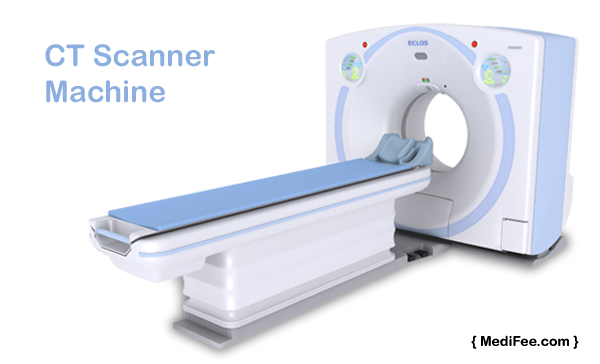
CT scans are, usually, used to examine people who have met with accidents and have good chances of severe internal injuries. These scans are used to:
- Diagnose certain health issues such as, stroke, cancer, infectious disease, cardiovascular disease, liver masses, lung nodules, appendicitis, etc.
- Diagnose disorders such as musculoskeletal disorders
- Monitor conditions like checking the size of tumors during and after any treatment.
To perform all these, the radiologist uses specialized equipment known as the CT scanner and thereafter interprets and analyzes the pictures.
CT Scan Procedure:
The scanner is a big machine much like a doughnut, with a hole or small tunnel in the centre. The x-ray tube and electronic x-ray detectors are placed opposite each other on a ring. This ring rotates around the patient, taking images. The computer processing the imaging information is located in another room, from where the radiologist will operate the scanner. The radiologist may hear and talk to the patient with the help of microphone and speakers. 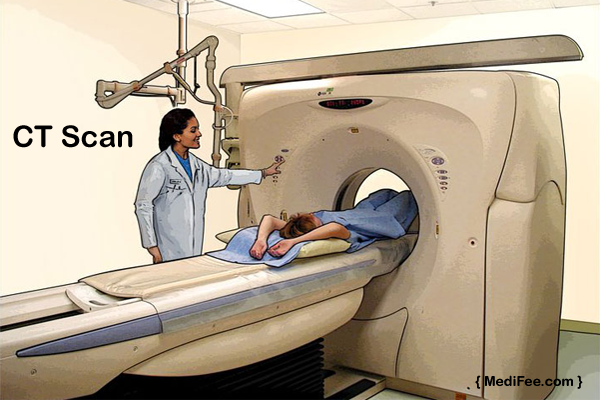
During the process, the radiologist will ask the patient to lie on their back on a flat, narrow bed like motorized table that will pass into the scanner. The radiologist may adjust some pillows and straps to help the person lie in the correct position. In this way, the person will not be able to move his body and that will help in getting accurate x-ray images. If head scanning is done, a special cradle will be fitted with the examination table, so that the head can be hold still. After the positioning, the radiologist may use some contrast material depending on the type of scanning. The patient will swallow the material or it will be administered by enema or injected through intravenous line.
Now the table will move the body into the scanner. The X-ray tube and detectors will start rotating around the body while taking multiple cross-sectional images of thin slices of the person’s body. During the scan, the person will be alone in the exam room. In special cases, a person wearing lead apron will be allowed in that room. 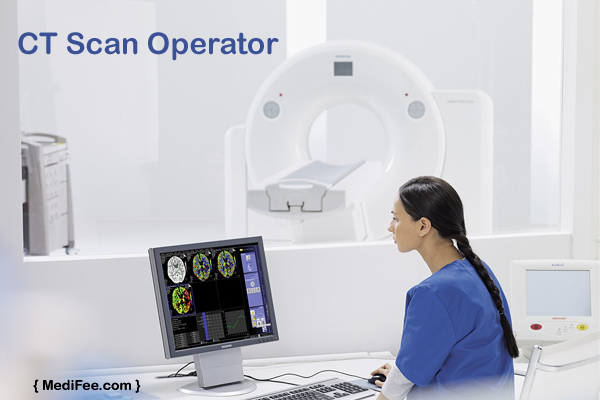
The technologist operating from the other room may ask the patient to hold their breath sometimes, in order to avoid getting blurred images. Once the scan is over, the patient can return to their normal routine. If someone feels uncomfortable, they may be asked to wait for some time and take rest, before they start their regular work.
CT Scan Benefits:
Having a CT scans, if advised by a physician, has many benefits:
- This process is non-invasive.
- It is quick, painless and gives more detailed, accurate cross-sectional images of the inside of the body as compared to traditional X-rays.
- CT scanners are designed in scientific ways so that the patient doesn’t, unnecessarily get exposed to high levels of radiation.
- These scans are very effective and important during emergency. Being fast and simple, these can give distinct reports of internal bleeding and injuries. Based on the reports, the treatment process can also be fast and effective.
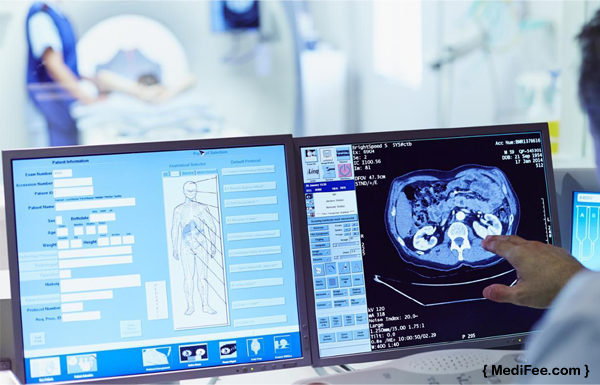
- Once the scanning is over, no amount of radiation remains in the patient’s body.
- A patient with an implanted medical device like pacemaker or cardioverter defibrillator, can go for CT scans, unlike MRI.
- The cross-sectional images act as a great tool to guide procedures like needle aspirations and needle biopsies.
- As CT shows clear images of even very small bones, it is helpful in diagnosing and treating health issues related to spinal cord.
Health risks:
There are some debates regarding the ill effects or health risks caused by CT scans. Research studies are yet to prove that radiation used during the scanning increases chances of cancer. Again a huge number of studies have found that therapies or scans using larger amounts of radiation increase a person’s exposure to cancer in the future. This risk may be slightly higher in children and young adults, who had had multiple scans. These classes of people may have a slightly increased risk of leukemia and brain tumors in the first 10 yrs, after the scan. 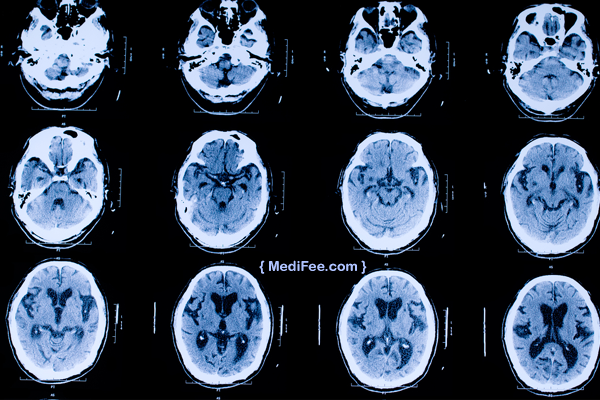
Besides the above risks, a patient may have allergic reactions to the contrast dye used at the time when the process is going on. It is to be noted that the amount of radiation a person will be exposed during the scanning will vary depending on the area of the body, that is, how much of the body is scanned. Not only this, the amount of radiation a person gets exposed to during one CT scan is more or less similar to the amount of natural radiation experienced from exposure to environment for a few years. Thus, the benefits of CT scans outweigh the small risks, according to many physicians. Medical imaging, as delivered by CT scans is greatly linked to lower mortality rates, greater life expectancy and obviously lesser numbers of hospitalization.
However it is always advisable to talk to doctor and radiographer regarding the potential risks and benefits and take decision accordingly.
Cost of CT scan:
The cost of CT scan varies in different hospitals. In India, the cost may be anywhere between Rs. 3000 to Rs. 50000 in private hospitals or diagnostic centers. The cost is comparatively lesser in government-run facilities and can vary between Rs.500 to Rs.2000.
Pregnant women and diabetic patients taking medications like Metformin must make their doctors aware of their health conditions.
No doubt, CT scans have many benefits; but due to the radiation emitted, a person must inform about conditions, if any to their physician.
Do pharmacy holder mere ko job chaye or all medical store any job rquirdmed